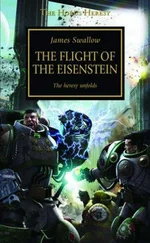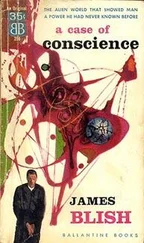James Blish - Cities in Flight
Здесь есть возможность читать онлайн «James Blish - Cities in Flight» весь текст электронной книги совершенно бесплатно (целиком полную версию без сокращений). В некоторых случаях можно слушать аудио, скачать через торрент в формате fb2 и присутствует краткое содержание. Жанр: Фантастика и фэнтези, на английском языке. Описание произведения, (предисловие) а так же отзывы посетителей доступны на портале библиотеки ЛибКат.
- Название:Cities in Flight
- Автор:
- Жанр:
- Год:неизвестен
- ISBN:нет данных
- Рейтинг книги:4 / 5. Голосов: 1
-
Избранное:Добавить в избранное
- Отзывы:
-
Ваша оценка:
- 80
- 1
- 2
- 3
- 4
- 5
Cities in Flight: краткое содержание, описание и аннотация
Предлагаем к чтению аннотацию, описание, краткое содержание или предисловие (зависит от того, что написал сам автор книги «Cities in Flight»). Если вы не нашли необходимую информацию о книге — напишите в комментариях, мы постараемся отыскать её.
Cities in Flight — читать онлайн бесплатно полную книгу (весь текст) целиком
Ниже представлен текст книги, разбитый по страницам. Система сохранения места последней прочитанной страницы, позволяет с удобством читать онлайн бесплатно книгу «Cities in Flight», без необходимости каждый раз заново искать на чём Вы остановились. Поставьте закладку, и сможете в любой момент перейти на страницу, на которой закончили чтение.
Интервал:
Закладка:
There was no further sound from the ion-rockets, which had inexplicably been shut off when the Per Aspera could have been no more than 250 miles above the surface of the Earth. Yet she was passing the Moon now, without the slightest sensation of movement, though she must still be accelerating. What was driving her? Paige could hear nothing but the small hum of the ship’s electrical generator, no louder than it would have been on the ground, unburdened of the job of RF-heating the electron-ion plasma which the rockets used. Grimly, he unsnapped the last gripper from his harness, conscious of what a baby he evidently was on board this ship, and got up.
The deck felt solid and abnormal under his feet, pressing against the soles of his shoes with a smug terrestrial pressure of one unvarying gravity. Only the habits of caution of a service lifetime prevented him from running forward up the companionway to the observation blister.
Anne and Senator Wagoner were there, the dimming moonlight bathing their backs as they looked ahead into deep space. They had been more than a little shaken up by the take-off, that was obvious, but they were already almost recovered; compared to the effects of the normal ferry take-off, this could only have ruffled them; and of course the sudden transformation to the impossible one-gravity field would not have bollized their untrained reflexes with anything like the thoroughness that it had scrambled Paige’s long-conditioned reactions. Looked at this way, space-flight like this might well be easier for civilians than it would be for spacemen, at least for some years to come.
He padded cautiously toward them, feeling disastrously humbled. Shining between them was a brilliant, hard spot of yellow-white light, glaring into the blister through the thick, cosmics-proof glass. The spot was fixed and steady, as were all the stars looking into the blister; proof positive that the ship’s gravity was not being produced by axial spin. The yellow spot itself, shining between Wagoner’s elbow and Anne’s upper arm, was—
Jupiter.
On either side of the planet were two smaller bright dots; the four Galilean satellites, as widely separated to Paige’s naked eye as they would have looked on Earth through a telescope the size of Galileo’s.
While Paige hesitated in the doorway to the blister, the little spots that were Jupiter’s largest moons visibly drew apart from each other a little, until one of them went into occultation behind Anne’s right shoulder. The Per Aspera was still accelerating; it was driving toward Jupiter at a speed nothing in Paige’s experience could have prepared him for. Stunned, he made a very rough estimate in his head of the increase in parallax and tried to calculate the ship’s rate of approach from that.
The little lunar ferry, humming scarcely louder than a transformer for carrying five people—let alone ten—as far as SV-1, was now hurtling toward Jupiter at about a quarter of the speed of light.
At least forty thousand miles per second.
And the deepening color of Jupiter showed that the Per Aspera was still picking up speed.
“Come in, Colonel Russell,” Wagoner’s voice said, echoing slightly in the blister. “Come watch the show. We’ve been waiting for you.”
CHAPTER TEN: Jupiter V
That is precisely what common sense is for, to be jarred into uncommon sense. One of the chief services which mathematics has rendered the human race in the past century is to put ‘common sense’ where it belongs, on the topmost shelf next to the dusty canister labeled ‘discarded nonsense.’
—ERIC TEMPLE BELLTHE SHIP that landed as Helmuth was going on duty did nothing to lighten the load on his heart. In shape it was not distinguishable from any of the short-range ferries which covered the Jovian satellary circuit, carrying supplies from the regular SV-1-Mars-Belt-Jupiter X cruiser to the inner moons—and, sometimes, some years-old mail; but it was considerably bigger than the usual Jovian ferry, and it grounded its outsize mass on Jupiter V with only the briefest cough of rockets.
That landing told Helmuth that his dream was well on its way to coming true. If the high brass had a real anti-gravity, there would have been no reason why the ion-streams should have been necessary at all. Obviously, what had been discovered was some sort of partial gravity screen, which allowed a ship to operate with far less rocket thrust than was usual, but which still left it subject to a sizable fraction of the universal G, the inherent stress of space.
Nothing less than a complete, and completely controllable gravity screen would do, on Jupiter.
And theory said that a complete gravity screen was impossible. Once you set one up—even supposing that you could—you would be unable to enter it or leave it. Crossing a boundary-line between a one G field and a no-G field would be precisely as difficult as surmounting a high-jump with the bar set at infinity, and for the same reasons. If you crossed it from the other direction, you would hit the ground on the other side of the line as hard as though you had fallen there from the Moon; a little harder, in fact.
Helmuth worked mechanically at the gang board, thinking. Charity was not in evidence, but there was no special reason why the foreman’s board had to be manned on this trick. The work could be as easily supervised from here, and obviously Charity had expected Helmuth to do it that way, or he would have left notice. Probably Charity was already conferring with the senators, receiving what would be for him the glad news.
Helmuth realized suddenly that there was nothing left for him to do now, once this trick was over, but to cut and run.
There could be no real reason why he should be required to re-enact the entire nightmare, helplessly, event for event like an actor committed to a role. He was awake now, in full control of his own senses, and still at least partially sane. The man in the dream had volunteered—but that man would not be Robert Helmuth. Not any longer.
While the senators were here on Jupiter V, he would turn in his resignation. Direct—over Charity’s head.
The wave of relief came washing over him just as he finished resetting the circuits which would enable him to supervise from the gang board, and left him so startlingly weak that he had to put the helmet down on the ledge before he had raised it half-way to his head. So that had been what he had been waiting for: to quit, nothing more.
He owed it to Charity to finish the Grand Tour of the Bridge. After that, he’d be free. He would never have to see the Bridge again, not even inside a viewing helmet. A farewell tour, and then back to Chicago, if there was still such a place.
He waited until his breathing had quieted a little, scooped the helmet up on to his shoulders, and the Bridge …
… came falling into existence all around him, a Pandemonium beyond broaching and beyond hope, sealed on all sides. The drumfire of rain against his beetle’s hull was so loud that it hurt his ears, even with the gain knob of his helmet backed all the way down to the thumb-stop. It was impossible to cut the audio circuit out altogether; much of his assessment of how the Bridge was responding to stress depended on sound; human eyesight on the Bridge was almost as useless as a snail’s.
And the bridge was responding now, as always, with its medley of dissonance and cacophony: crang … crang … spungg … skreek … crang … ungg … oingg … skreek … skreek …. These structural noises were the only ones that counted; they were the polyphony of the Bridge, everything else was decorative and to be ignored by the Bridge operator—the fioritura shrieking of the winds, the battery of the rain, the pedal diapason of thunder, the distant grumbling roll of the stage-hand volcanoes pushing continents back and forth on castors down below.
Читать дальшеИнтервал:
Закладка:
Похожие книги на «Cities in Flight»
Представляем Вашему вниманию похожие книги на «Cities in Flight» списком для выбора. Мы отобрали схожую по названию и смыслу литературу в надежде предоставить читателям больше вариантов отыскать новые, интересные, ещё непрочитанные произведения.
Обсуждение, отзывы о книге «Cities in Flight» и просто собственные мнения читателей. Оставьте ваши комментарии, напишите, что Вы думаете о произведении, его смысле или главных героях. Укажите что конкретно понравилось, а что нет, и почему Вы так считаете.












